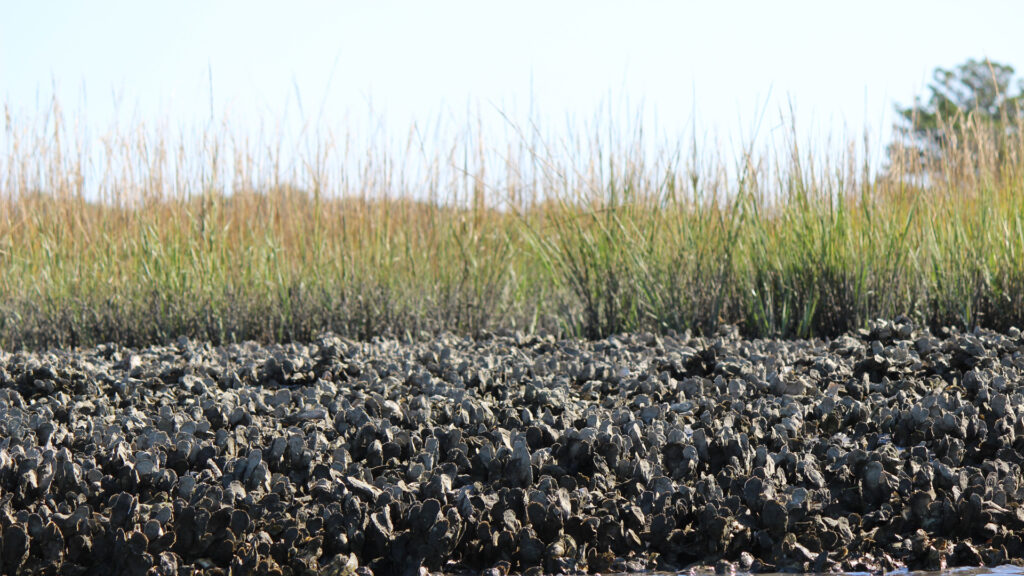By Josh McLawhorn, Level Up Digital Media
The collapse of Florida’s oyster reefs serves as a stark reminder of the interconnected challenges we face: freshwater mismanagement, habitat destruction and economic development at odds with environmental health. Beneath the surface of Florida’s natural paradise lies a crisis that has the potential to reshape the state’s environment and economy.
As highlighted in the documentary “Unfiltered: The Truth About Oysters,” the story of Florida’s oysters is both cautionary and hopeful. Over the last three decades, Florida’s ancient oyster reefs, particularly those in the Apalachicola Bay, have suffered catastrophic declines. The culprits are familiar: pollution, overharvesting and a drastic reduction in freshwater flow — the lifeblood of these ecosystems. Climate change, with its rising sea levels and intensifying storms, has only exacerbated these issues.
Oysters are more than a culinary delicacy; they are ecosystem engineers. Each adult oyster can filter up to 50 gallons of seawater a day, removing pollutants and ensuring the clarity and health of our coastal waters. Their reefs provide critical habitat for a multitude of marine species, from shrimp and crabs to juvenile fish. They act as natural barriers, reducing shoreline erosion and buffering the impact of storm surges — a vital service in a state so vulnerable to hurricanes.

But as 90% of the world’s oyster reefs have disappeared, the ripple effects on coastal communities have been profound. In Florida, the collapse of oyster reefs has jeopardized the livelihoods of seafood workers and threatened the biodiversity that makes our waters so vibrant. The state’s decision to close the Apalachicola oyster beds in 2020 was a necessary measure to give the ecosystem a chance to recover, but it also underscores the dire state of our coastal habitats.
At the heart of this crisis is the mismanagement of freshwater resources. Florida’s rivers and estuaries depend on a delicate balance of saltwater and freshwater. Yet, upstream water diversions for urban development and agriculture have disrupted this balance, starving estuaries like the Apalachicola Bay of the freshwater they need and have historically had. Without this inflow, oysters struggle to survive in increasingly saline waters, making them more susceptible to disease and predators.
Climate change compounds these challenges. Rising temperatures alter water chemistry, while more intense storms wash pollutants into coastal waters, further degrading oyster habitats. Red tide, a toxic algal bloom fueled by nutrient runoff and warming seas, poses yet another threat, devastating marine life and the economies that depend on it.
Despite the bleak outlook, there is reason for optimism. Florida has become a testing ground for innovative restoration efforts. As highlighted in “Unfiltered,” projects like artificial reefs and shell recycling programs are showing promise. These initiatives provide hard surfaces where oyster larvae can attach and grow, rebuilding reefs in areas where they’ve been lost. Aquaculture is another bright spot, with sustainable oyster farming offering both economic opportunities and ecological benefits. Farmed oysters still filter water and provide habitat, contributing to overall ecosystem health.

The restoration of oyster reefs is about more than preserving a single species; it’s about safeguarding Florida’s entire coastal ecosystem. Oysters play a foundational role in these environments, and their decline signals broader issues that demand our attention. Restoring freshwater flows to estuaries like Apalachicola Bay is critical. This means advocating for water policies that balance the needs of agriculture, urban areas and natural ecosystems. It also means investing in sewer and stormwater infrastructure to reduce nutrient runoff and mitigate the impacts of climate change.
As Floridians, we must recognize the urgency of these issues. The decisions we make today — whether about water management, land use or climate policy — will determine the future of our state. Protecting and restoring oyster reefs is not just an environmental imperative; it’s an investment in the resilience of our communities and economies.
The story of Florida’s oysters is a microcosm of the challenges facing coastal ecosystems worldwide. But it’s also a story of resilience and the power of collective action. By supporting restoration efforts, advocating for sustainable practices and addressing the root causes of environmental decline, we can ensure that Florida remains a land of abundance for generations to come.
Oysters, though silent, have long been the protectors of our waters. Now, it’s our turn to protect them.
Josh McLawhorn is the president of Level Up Digital Media and director of the documentary “Unfiltered: The Truth About Oysters,” which can be seen on PBS stations starting Jan. 15. For more information, visit www.oyster.film. Banner photo: Oyster harvesting (iStock image).
Sign up for The Invading Sea newsletter by visiting here. To support The Invading Sea, click here to make a donation. If you are interested in submitting an opinion piece to The Invading Sea, email Editor Nathan Crabbe at ncrabbe@fau.edu.



